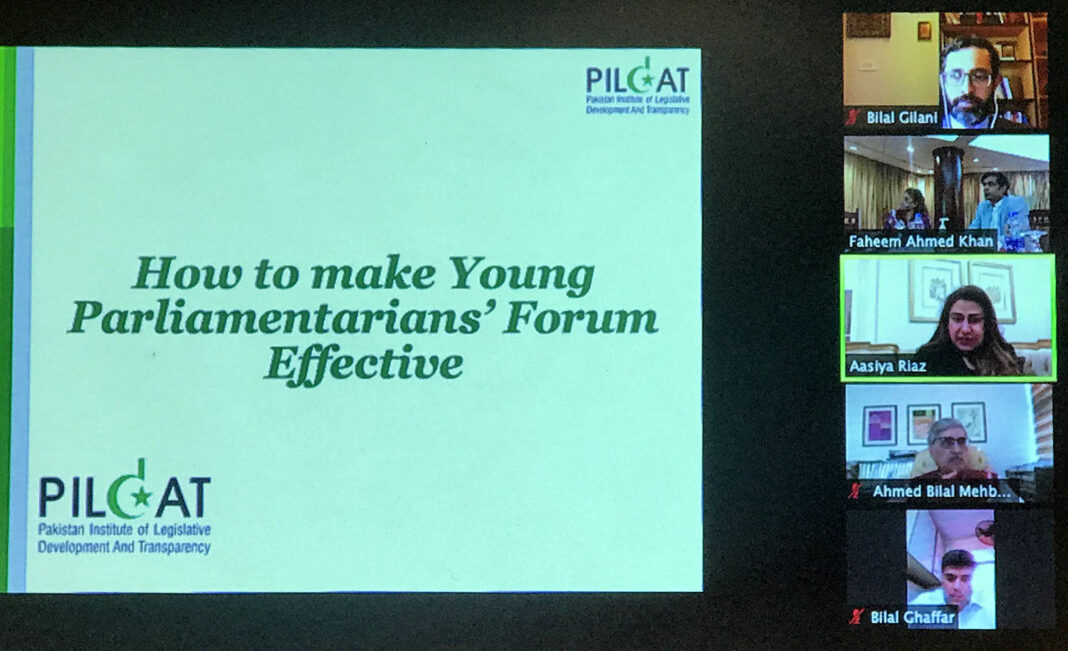By: Our Correspondent
World Suicide Prevention Day is observed worldwide on 10th of September each year. The day is promoted by the International Association for Suicide Prevention (IASP) in collaboration with the World Health organization (WHO). Pakistan Institute of Living and Learning (PILL), in collaboration with the University of Manchester organized an online event titled “Working Together to Prevent Suicide”, which was attended by a large cross-section of people from Pakistan and the UK. At the event, Prof. Nasim Chaudhry, CEO PILL, explained, “Raising community awareness and breaking down taboo is important in promoting positive and non-judgmental attitudes towards suicidal behaviours”. According to the WHO, one person dies from suicide every 40 seconds, and there may be another 20 attempting suicide, which is alarming. Most suicides occur in Low and Middle-Income Countries like Pakistan. Prof. Mowadat H Rana added, “There are a number of reasons which can trigger suicide such as relationship issues, unemployment, teachers and parents’ high expectations, substance misuse and importantly, psychiatric disorders. It should be our social responsibility to let people express their feelings and listen to them with a positive, empathetic and non-judgmental attitude. Dr. Amjad Chaudhry added his insight, highlighting that the world is becoming more globalized because of digital platforms, where communities remain naïve about the positive and negative consequences of technology. Suicide attempts can be fatal and put families, friends, colleagues, communities and societies into long-lasting emotional distress. Prof. Zainab Zadeh talked about challenges and barriers in accessing help for this target population in Pakistan, including wide spread stigma, lack of awareness and misconceptions. During a panel discussion, Prof. Imran Bashir Chaudhry, HOD – Ziauddin University and Hospital, mentioned that “Suicide risk is high in the age-group of 15-29 and is also the second leading cause of death in this age-group. In Pakistan, a nation with more than 60% youth, already bound by several religious, cultural and legal barriers, culturally relevant suicide prevention strategies are urgently needed.
Prof. Nusrat Husain, Professor of Psychiatry and Director Research for Global Mental Health at the University of Manchester and consultant psychiatrist at Lancashire and South Cumbria NHS Foundation Trust, emphasized that suicide is preventable and living is always an option. Professor Husain applauded PILL excellent work towards preventing self-harm and suicide through different research programs and channels. Professor Husain and other speakers during the session talked about world leading innovative research projects jointly led by University of Manchester and PILL (CMAP (MR/N006062/1), YCMAP (MR/R022461/1), SAHAR M (MR/E028144/1). These initiatives are not only developing culturally sensitive psychological therapies but also building local capacity and capability to address this major global public health problem. There was a Q&A session at the end of the panel discussion, where audience asked multiple questions about mental health, self-harm and suicide.
Professor Nasim Chaudhry concluded the session by accentuating the importance of simply talking to someone and being listened to. Communicate and care. Seek Help and Offer Help. Preventing suicide has to be everyone’s business and we must remember, there is always a way out, and best results will be in working together to prevent suicide.



